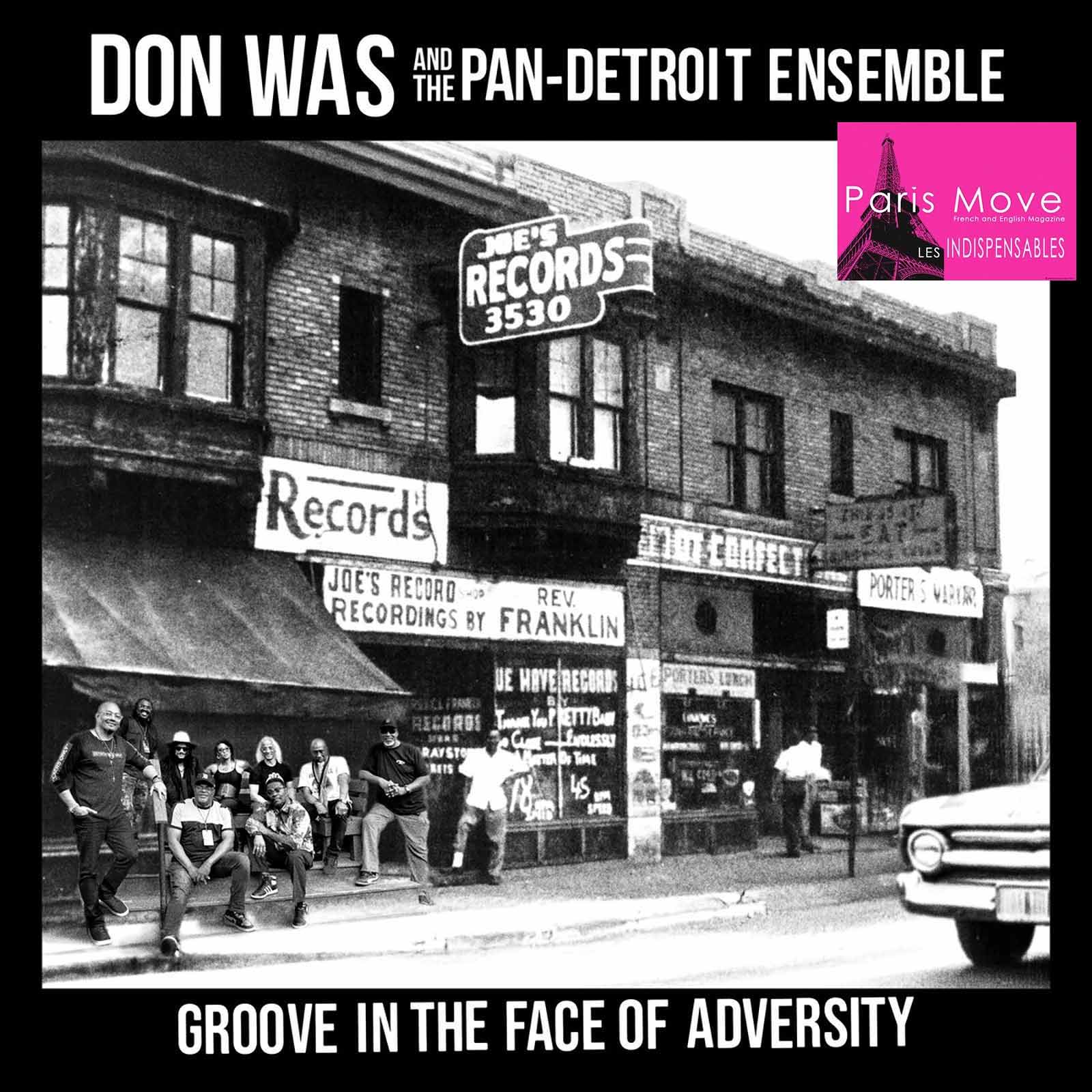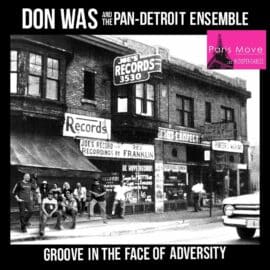| Jazz Funk |

Mack Avenue Records has rarely been accused of playing it safe. Yet even by its own adventurous standards, its latest release feels like a bold gamble, and, at times, a head-scratcher. By handing the spotlight to Don Was, the Grammy-winning producer, bassist, and president of Blue Note Records, the label ventures far beyond the jazz lanes it usually travels, into terrain where reggae, funk, and ’70s-style pop production dominate. The result is an album that both defies easy categorization and dares the listener to question what “belongs” on a jazz imprint in 2025.
For those who know Was primarily as a studio mastermind, the shift is intriguing but not entirely surprising. His reputation was cemented decades ago: six Grammy Awards, including Album of the Year for Bonnie Raitt’s Nick of Time in 1989 and Producer of the Year in 1994; a BAFTA for Best Original Score (Backbeat); an Emmy for musical direction on CBS’s The Beatles: The Night That Changed America; and a Golden Gate Award for his documentary on Brian Wilson. Few producers have moved as effortlessly between genres, guiding albums by The Rolling Stones, Bob Dylan, John Mayer, Willie Nelson, and countless others to collective sales north of 100 million.
And yet, that résumé cuts both ways. With such credentials, one might expect a record brimming with authority, polish, and the kind of genre mastery that comes only from decades of cross-pollination. What Was delivers instead is something slipperier: an album that sounds, at various turns, like a funk experiment, a reggae detour, a jazz fusion sketchbook, and an unabashed throwback to the production-heavy pop of the 1970s. It is an album that, frankly, refuses to sit still.
That refusal can be thrilling. The opening tracks carry the loose, groove-oriented swagger of a musician who has nothing left to prove, only ground left to explore. The bass lines lock into deep reggae pockets, the guitar textures nod to fusion without fully surrendering to it, and the studio wizardry is front and center, layers of sound stacked in a way that constantly recalls Was’s decades as one of the industry’s most in-demand producers. At its best, the album feels like a party in multiple rooms of the same house, each space offering its own rhythm and mood.
But there is also a nagging sense of disorientation. For listeners loyal to Mack Avenue’s core catalog, albums that lean toward straight-ahead jazz, soulful modernism, or acoustic virtuosity, this project may feel like an interloper. Jazz, here, is more of an accent than a foundation. A fleeting horn line, a harmonic detour, a rhythmic surprise: these are the “jazz moments,” but they never dominate. Instead, the record asks jazz listeners to meet it on reggae and funk terms, to suspend expectations of swing or improvisational fireworks in favor of groove and atmosphere.
For some, that will be liberating. For others, alienating.
Take “I Ain’t Got Nothin’ But Time,” one of the album’s most compelling cuts. The track lands with a nostalgic punch, conjuring the sepia tones of ’70s vinyl, the kind of tune that makes you want to pull old records off the shelf and remember what pop once sounded like before digital sheen took over. It is no accident that the song carries this retro vibe; Was has long been a student of past eras, and his ability to channel their production signatures is uncanny. Yet what feels like reverence to some may strike others as pastiche, a lovingly crafted imitation rather than a bold new direction.
The album’s middle stretch showcases Was’s restlessness most clearly. Funk rhythms give way to reggae syncopations, which dissolve into sprawling, layered textures. At times, the polish works against the spontaneity; the listener may yearn for the raw edges that often give jazz-fusion its spark. The carefully controlled production, a hallmark of Was’s career, sometimes smothers the very unpredictability that jazz fans prize.
And yet, one cannot dismiss the ambition. This is, after all, the work of an artist who has spent more than five decades refusing to be boxed in. Beyond the studio, Was has led the Don Was Detroit All-Star Revue for over 15 years, co-hosted NPR’s Motor City Playlist and SiriusXM’s Dinner with Don Was, and since 2018 has toured with Bobby Weir & Wolf Bros, the group he co-founded with the Grateful Dead’s guitarist. This album feels like an extension of that restless biography: a lifetime of influences funneled into a single, genre-resistant statement.
So where does that leave us? Somewhere between admiration and ambivalence. As a statement of artistic independence, the album succeeds brilliantly. It refuses to conform, it asks questions rather than delivering answers, and it insists that jazz labels need not be monolithic. But as a listening experience, it can be uneven, moments of genuine spark followed by stretches that feel too polished, too indebted to the past to truly break new ground.
For the adventurous jazz listener, this is an album worth hearing, if only for the curiosity it provokes. It challenges expectations, plays with genre boundaries, and offers flashes of brilliance that few producers could pull off. For the more traditional fan, however, it may feel like a detour too far from the heart of jazz.
Perhaps that is exactly the point. Don Was having built a career out of defying categories. Why should his Mack Avenue debut be any different?
Thierry De Clemensat
Member at Jazz Journalists Association
USA correspondent for Paris-Move and ABS magazine
Editor in chief – Bayou Blue Radio, Bayou Blue News
PARIS-MOVE, September 29th 2025
Follow PARIS-MOVE on X
::::::::::::::::::::::::
ABOUT THE PAN-DETROIT ENSEMBLE: Founded by Don Was, the Pan-Detroit Ensemble brings together some of Detroit’s finest jazz musicians, including Jeff Canaday (drums), Vincent Chandler (trombone), Steffanie Christi’an (vocals), John Douglas (trumpet), Wayne Gerard (guitar), Mahindi Masai (percussion), Dave McMurray (saxophone), and Luis Resto (keyboards).
Track Listing:
Midnight Marauders
Nubian Lady
I Ain’t Got Nothin’ But Time
This Is My Country
You Asked, I Came
Insane

